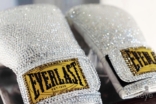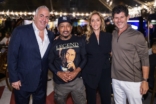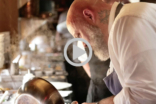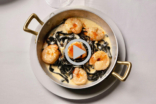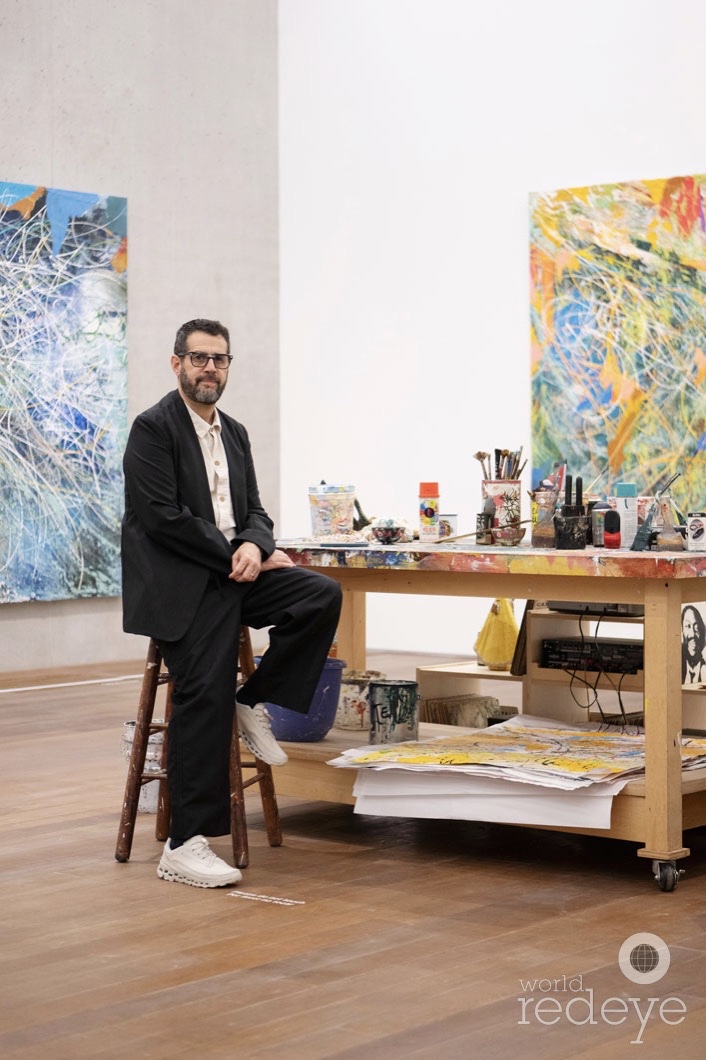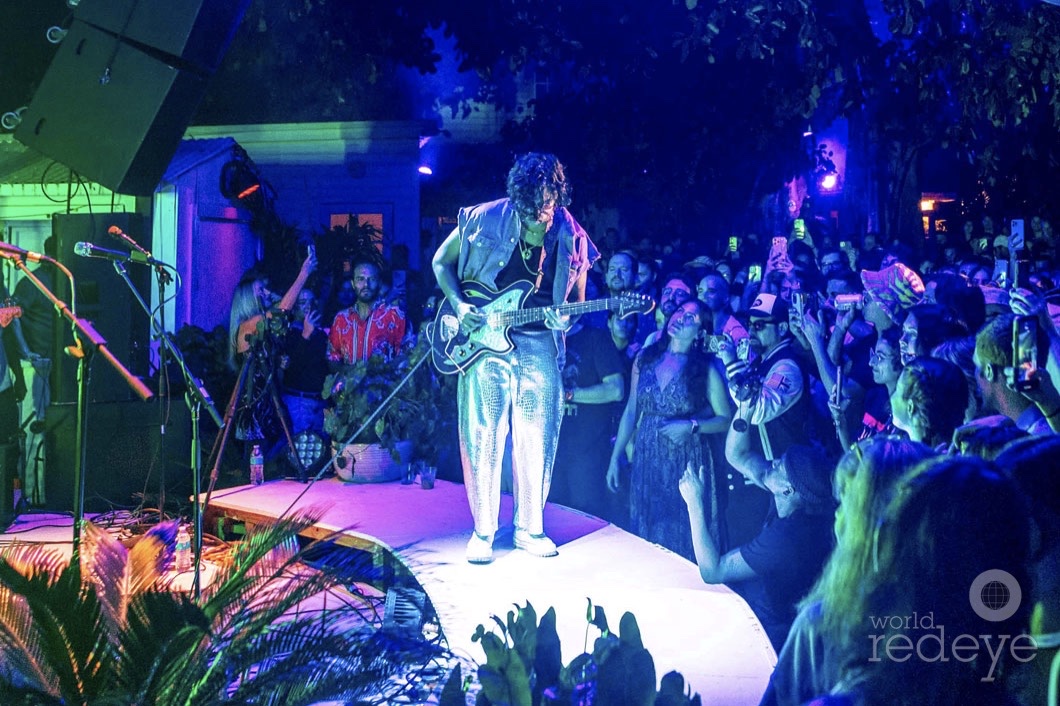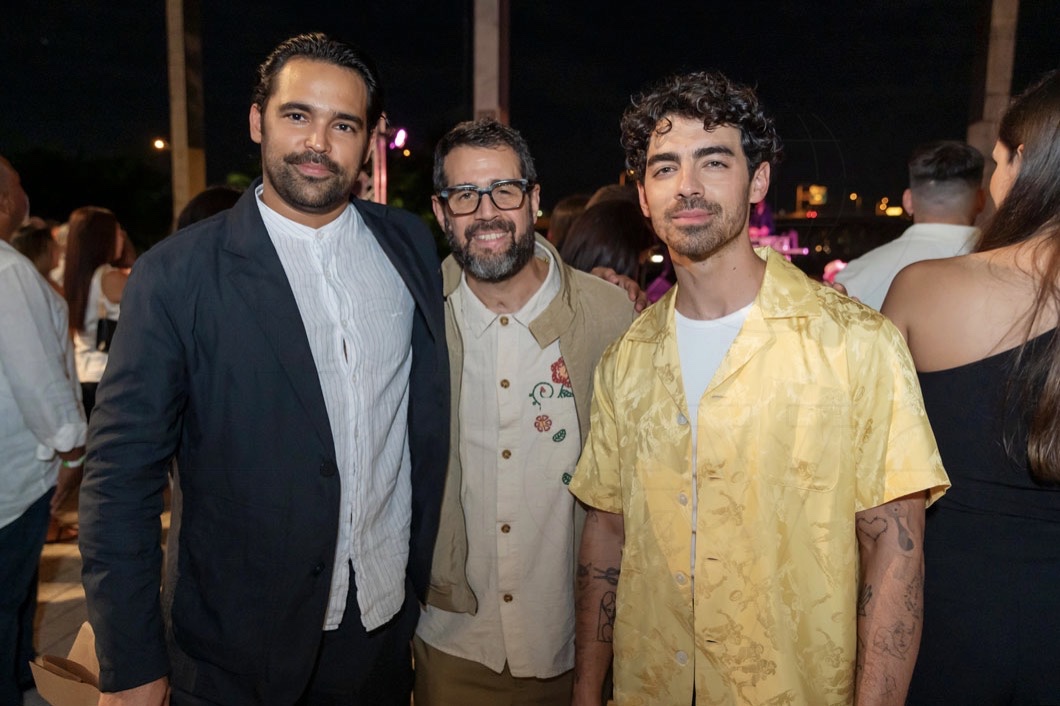Q&A: 2015 MDC’s Miami International Film Festival: Dawg Fight Red Carpet

Miami, FL – March 12, 2015 – The men behind the hit documentaries “Cocaine Cowboys” and “The U” have done it again, creating another incredible film that touches on a thought provoking topic about an often overshadowed community here in Miami with their latest hit, “Dawg Fight.” When many think of Miami most thoughts that come to mind usually include lavish nightclubs, white sandy beaches and blue waters with a fruity drink in hand. What many don’t know is that those things are only a small part of Miami’s diverse culture. Far down in Southwest Miami-Dade County lies an impoverished community where over a third of its residents are currently unemployed, and violent crimes are as common as seeing a palm tree. But, within this distressed community lies a little bit of hope for its residents. Dhafir “Dada 5000” Harris has gained notoriety through bare knuckled battles as part of the crew of Mixed Martial Arts sensation Kimbo Slice, a childhood friend. Using his mothers backyard as a fighting ring, “Dada 5000” quickly moved on to build the reputation as the “Don King of backyard brawling” for taking on the roles of broker, promoter and referee. What many also don’t know is that these residents partaking in the brawls are doing it for more than just notoriety, they are doing it to survive. “Dawg Fight” gives us a raw and uncut exploration of the brawling culture here in Miami, a topic many did not know existed until now.
Before the big Miami International Film Festival premiere, World Red Eye caught up with Director of the film, Billy Corben, who gave us a deeper look into what inspired the film, and why its important we learn about such a culture.

WRE: What inspired you to work on Dawg Fight?
BC: It was Dada’s story. Francisco Alvarado and photographer Colby Katz had covered the backyard fights for the Miami New Times. We were fascinated that Dada had made himself the Don King of the backyard brawls by organizing this illegal unsanctioned sport into block party events.
WRE: How familiar were you with West Perrine’s backyard fighting culture before you started this film?
BC: If you were in Miami in the mid-00s, you started hearing about Kimbo Slice. By the middle of the decade YouTube launched and backyard amateur fighting took off. Kimbo was the godfather of the game, and he inspired a new generation of young men in South Florida with little other opportunity to try and fight their way out to a better life for themselves and their families. They followed Kimbo’s “business model,” fighting in the backyard, video recording it and uploading it online in hopes of being discovered by a professional MMA trainer or promoter.

Alfred Spellman, Billy Corben, & Evan Rosenfeld
Billy Corben, Director of Dawg FightWe were fascinated that Dada had made himself the Don King of the backyard brawls by organizing this illegal unsanctioned sport into block party events.

Billy Corben, Dennis Scholl, Alfred Spellman, & Jaie Laplant
WRE: What do you think it is that keeps this fighting culture so prevalent here in Miami?
BC: Lack of opportunity. Miami-Dade has the second highest income inequality of any large county in the country. There’s a huge disconnect between life on the Beach and Brickell, and the rest of the county that sprawls 25 miles to the west before you hit the Everglades and 40 miles to the south. We’re a service industry town, there aren’t a lot of ways to make legitimate money. We also have such a diverse population of different people from different cultures, and each culture had its own popular form of fighting: street fighting, cockfighting, jiu jitsu, et al.

WRE: Some would argue that the fighting should end and that it is only bringing more violence. What do you have to say about that?
BC: People like to talk condescendingly about “the cycle of violence in the hood.” It’s easy to pass judgment on people who have little hope or opportunity when you don’t understand their experience. It’s easy to feign concern about young children seeing these poor minority men fighting for money. But then they turn on the TV and see rich white men going to war for money. Violence is not an inner-city condition, it is a human condition, and I’d love for it to stop. Let me know how that goes.
WRE: Is there something that really surprised you along the way about the fighting culture that you may have not expected before working on this project?
BC: We were aware of and concerned about the violence. But what we didn’t expect was how warm, welcoming and festive the community and atmosphere were. As I said before, these fighting events were like block parties, the whole neighborhood got involved, attending the events, providing parking, cooking and selling delicious food. I’ve often said that fight were the culinary highlight of my month. I had some of the best barbecue, seafood rice (West Perrine paella), fried catfish, etc. prepared by Dada’s neighbors.

Billy Corben
Billy Corben, Director of Dawg FightIt was especially great to premiere Dawg Fight here — there’s really nowhere else we could have premiered it. It’s a 305 movie through-and-through.

Alfred Spellman & Billy Corben
WRE: How did it feel to finally premiere the film in Miami?
BC: It’s hard to believe, but this is the first time in our 15 years of making documentaries that we premiered a film at the Miami International Film Festival. The only other time we had a film at the festival was in 2002 with our Sundance doc Raw Deal: A Question of Consent. But it was especially great to premiere Dawg Fight here — there’s really nowhere else we could have premiered it. It’s a 305 movie through-and-through.
WRE: What’s the overall message you want people to take in after seeing Dawg Fight?
BC: We want to help shed some light on the Miami-Dade map, and tell stories about people and places you don’t see in tourism brochures.

Billy Corben & Alfred Spellman

Billy Corben

Billy Corben, Evan Rosenfeld, Alfred Spellman, & David Cypkin

Jaie Laplante & Billy Corben


Anthony Lucero & Jose-Antonio Valencia

Brooke & AJ Rosenfeld

Jaie Laplante & Alfred Spellman

Evan Rosenfeld, Jaie Laplante, & Alfred Spellman

AJ Rosenfeld, Alfred Spellman, & Seth Browarnik

Seth Browarnik, Jaie Laplante, & Dennis Scholl



Jaie Laplante & Thom Powers

Jaie Laplante


Billy Corben


Jaie Laplante, Billy Corben, & Thom Powers





